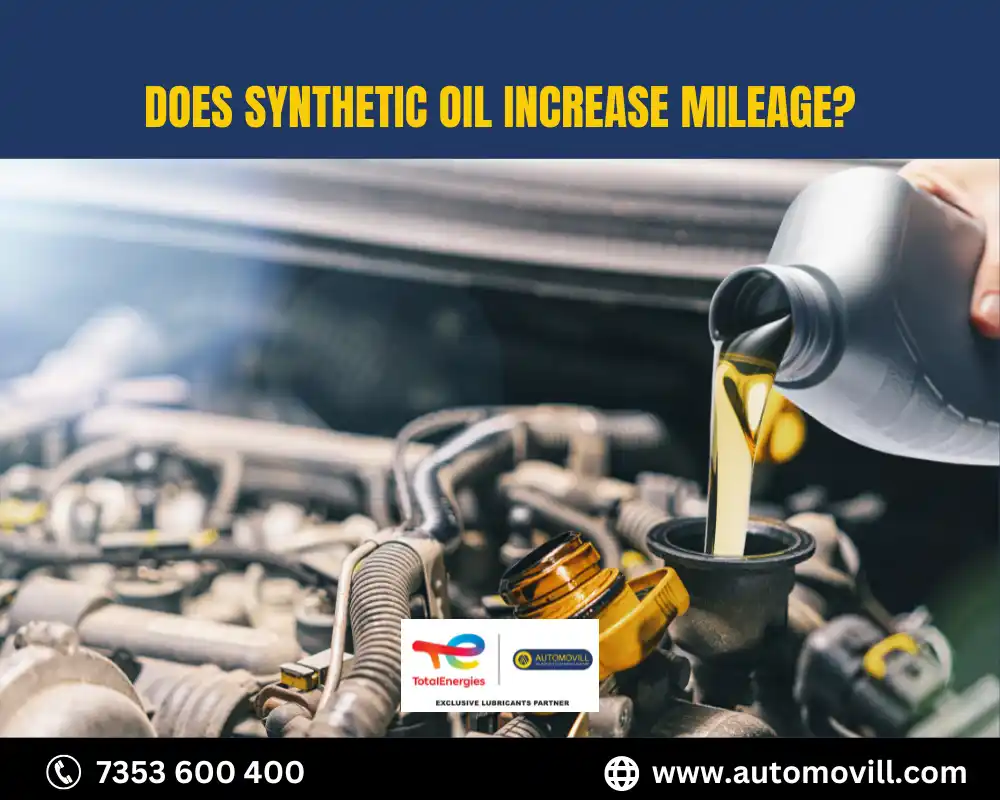
As car owners we strive for better fuel efficiency and performance in our vehicles, and the choice of engine oil plays a crucial role.
Smoother rides, improved engine longevity, and potentially, more miles covered on each gallon of fuel.
But the Viscosity Index of Lubricating Oil matters a lot in engine performance and better mileage.
But is this a reality or just another automotive myth?
Let’s delve into the realm of synthetic oil and its impact on mileage.
Grab your dipstick and let’s rev up our engines of knowledge to find out!
The Lowdown on Synthetic Oil
Let’s start with the basics, shall we? Synthetic oil isn’t your regular, run-of-the-mill lubricant.
Unlike conventional oils, synthetic oil isn’t drilled straight from the earth’s depths; it’s crafted in laboratories with the precision of a master chemist.
The Slick Science Behind It
Here’s where things get interesting. Synthetic oil boasts a smoother, more consistent molecular structure than conventional oil. It’s like the difference between gravel roads and a freshly paved highway.
This means less friction, less wear and tear, and a comfortable ride for your engine’s moving parts. Your engine won’t need to work as hard to overcome resistance, which can contribute to better fuel efficiency.
How Does Synthetic Oil Boost Mileage?


Synthetic oil, formulated in laboratories rather than being refined from crude oil, boasts an array of properties that can positively influence a vehicle’s mileage.
Here are some key reasons why synthetic oil might contribute to better fuel efficiency:
1. Reduced Friction
Synthetic oils are designed to have a consistent molecular structure, resulting in reduced friction between engine components. So, if there is less friction, the engine doesn’t have to work as hard, potentially leading to improved mileage.
2. Enhanced Lubrication
Synthetic oils provide superior lubrication, ensuring that all moving components within the engine are well-coated and protected. This reduces wear and tear, optimizing engine efficiency and indirectly improving fuel consumption.
3. Better Cold-Flow Ability
Synthetic oil provides much better cold-flow ability than conventional oil, which means it flows in the engine much faster in cold temperatures. This reduces engine wear during startup, which can contribute to better mileage over time.
4. Lower Viscosity
Synthetic oils can be formulated to have a lower viscosity index while maintaining their protective properties. Lower viscosity means less resistance within the engine, potentially leading to improved fuel efficiency.
However, low-viscosity oils can also be less effective at providing lubrication at high temperatures.
For most engines, a 5W-20 or 0W-20 oil is a good choice for reducing friction. These oils are thin enough to flow easily at cold temperatures, but they are also thick enough to provide adequate lubrication at high temperatures and loads.
5. Cleaner Engines
Synthetic oils contain fewer impurities compared to conventional oils. This cleaner composition reduces the formation of deposits and sludge in the engine, which can clog passages and negatively impact performance.
How to Switch to Synthetic Oil?
So, should you make the switch to synthetic oil solely for the mileage magic? Well, it’s not that cut and dry (or should we say, oiled and filtered?).
While synthetic oil does offer a mileage boost, it’s just one piece of the puzzle. If you’re looking to stretch those miles, remember these key points as transitioning to synthetic oil requires careful consideration and proper procedure:
1. Consult Your Vehicle Manual: Check your vehicle’s manual to see if synthetic oil is recommended or required. Some older engines or specific models might not be suitable for synthetic oil due to their design or condition.
2. Choose the Right Synthetic Oil: Synthetic oils come in various viscosities and formulations. Select an oil that matches the specifications recommended by your vehicle’s manufacturer.
3. Engine Flush: Before making the switch, ensure your engine is in good condition. If your engine has been running on conventional oil for a long time, it might be beneficial to perform an engine flush to remove any accumulated deposits.
4. Change the Oil Filter: When switching to synthetic oil, also replace the oil filter. This ensures that the benefits of synthetic oil are not compromised by a clogged or outdated filter.
5. Monitor Performance: After the switch, monitor your vehicle’s performance and mileage closely. Keep track of any changes, positive or negative, in fuel efficiency and engine behavior.
How Often Do You Need To Change Synthetic Oil?
The recommended oil change intervals for synthetic oil can vary based on factors such as driving conditions, vehicle make, and manufacturer guidelines. However, synthetic oils generally have a longer lifespan than conventional oils. Common intervals could range from 7,500 to 10,000 miles, or even longer in some cases.
It’s important to note that while synthetic oils may have extended intervals, regular maintenance checks are still crucial. Regularly inspect your oil level, monitor for any signs of oil degradation, and adhere to the manufacturer’s recommendations for optimal engine health.
Fueling Your Decision
So, does synthetic oil deserve a spot in your engine’s heart? Absolutely. It’s not just a fad; it’s a scientific marvel that can give your mileage a nudge in the right direction.
But remember, there are no shortcuts to mileage paradise. It’s a collaborative effort between your driving habits, the engine’s health, and the liquid gold coursing through its veins.
Next time you’re at the crossroads of conventional and synthetic, armed with the knowledge of their mileage-boosting potential, you can make an informed decision.
It’s not about going from 0 to 100 in a blink; it’s about enjoying the journey while giving your engine the love it deserves.
Safe travels, and may your mileage be ever in your favor! 🚗💨
